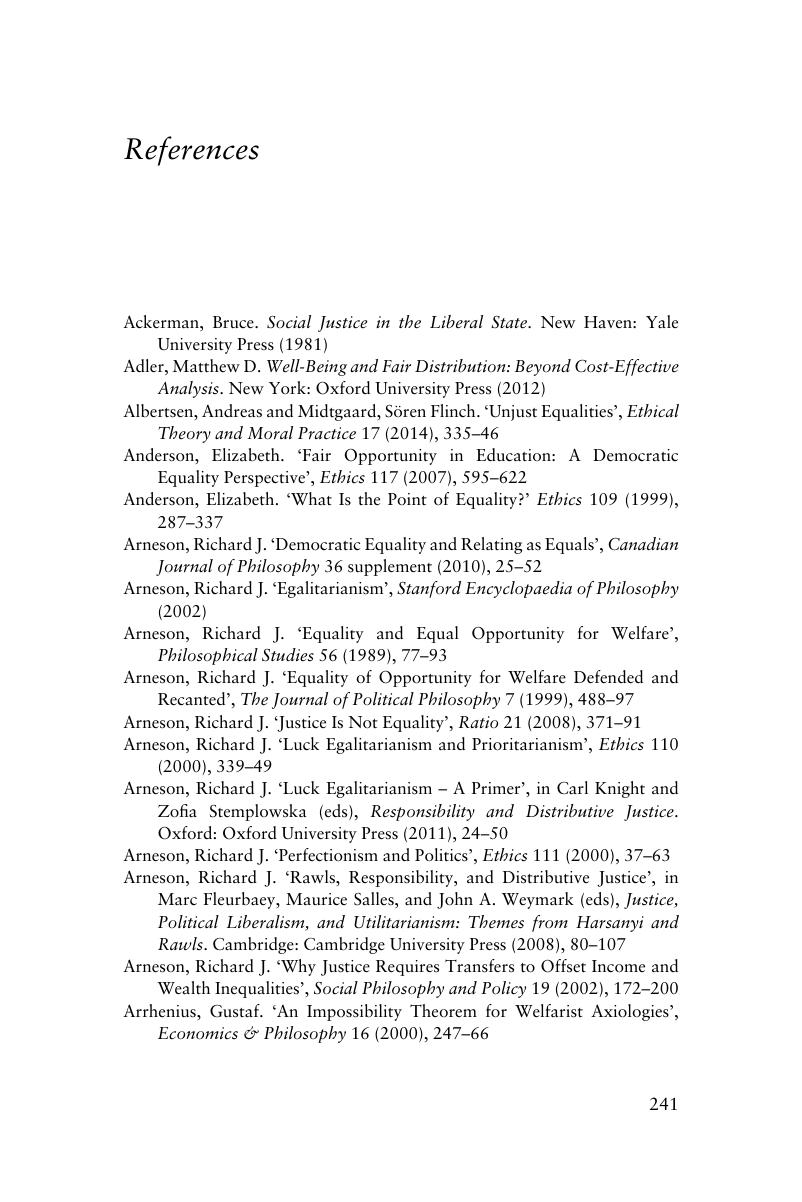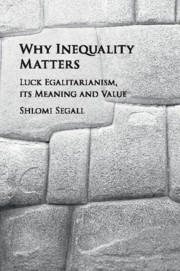References
Published online by Cambridge University Press: 05 June 2016
Summary

- Type
- Chapter
- Information
- Why Inequality MattersLuck Egalitarianism, its Meaning and Value, pp. 241 - 252Publisher: Cambridge University PressPrint publication year: 2016



